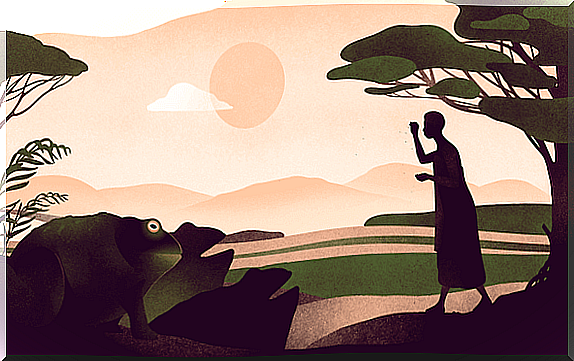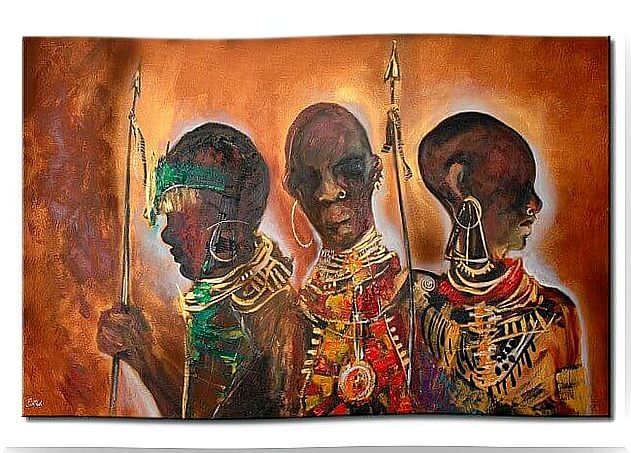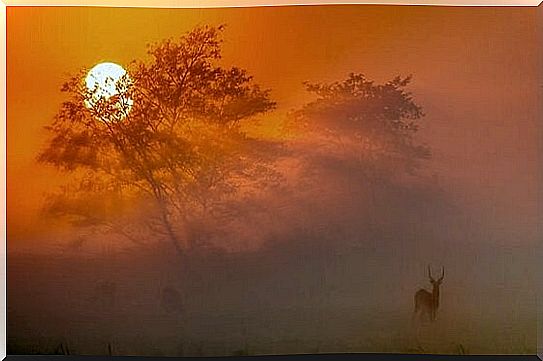Ancestral African Proverbs

Many of the African cultures have hundreds of years of tradition. The cradle of humanity is found on the Black Continent, home to men who come from very ancient societies. African proverbs are but proof of this hereditary wisdom.
Much of the African proverbs have led to the creation of proverbs or aphorisms in the culture of other continents. It doesn’t surprise us, given the depth and beauty of some of them. Their naturalness enchants us and their logic leaves you breathless.
Today we have chosen to present you a selection of ancient African proverbs that deal with the most disparate topics, but with the same goal: to be a guide for life. They are simple, but incredibly deep. Here are ten great teachings.
African proverbs about hunting
Many of the African proverbs speak of hunting. After all, many populations of this continent have always coexisted with a wild nature. In this Nigerian proverb, for example, the importance of keeping alert is appreciated: “The hunter does not cover himself with fat and goes to sleep by the fire”.

Here is another beautiful metaphor: “The hunter who chases an elephant does not stop to throw stones at the birds”. It is one of the African proverbs originating in Uganda and can be interpreted in two ways. On the one hand, if we are fighting for a big goal, we must not be distracted by small clashes. On the other hand, those who have a great goal have the obligation to look forward, without stopping.
Here is another African proverb that serves as an incredible teaching: “A tiger must not proclaim its pride. ” It refers to the fact that someone who is really strong doesn’t need to prove it to others. Like a tiger, it only displays its fangs when necessary. Instead, it is the weak and the insecure who seek the approval of others with each of their actions.
African proverbs about caution
Almost all ancestral cultures placed great value on caution and prudence. To primitive man, it was almost all unknown, surprising and potentially threatening. For this reason, several very old African proverbs speak of prudence. One, for example, says: “Man does not go far from where he cooks his corn”.

Similarly, this other proverb of Swahili culture says: “If you don’t plug the holes, you will have to rebuild the walls”. Both this and the previous one speak of the importance of taking care of what you have.
Another African proverb indicates: ” Evil creeps in like a needle, but then reveals itself as an oak”. These poetic words show themselves as a warning linked to the spiritual world, revealing to us how the negative elements may initially appear tiny and almost imperceptible, but if they are allowed to grow, they turn into resistant viruses, difficult to eradicate.
Millennial advice and proverbs of hope
In Burundi the following proverb is very popular: “You cannot hide the smoke if you have lit the fire”. It indicates that actions always have visible consequences, no matter how hard you try to hide them. Any action leaves an imprint, however discreet it may be.
This other proverb warns us about the effects of letting oneself be carried away by uncontrolled emotions: “Passion and hatred are children of drinks that get drunk”. This concept is extremely truthful and realistic: extreme feelings and passions end up taking possession of the will of the individual who lets them grow freely. There is an unhealthy satisfaction that drives us to nourish certain impulses.
But if many African proverbs are worth warning of risks or bad feelings, there are others that instead praise hope. Here is a very nice one: “ Remember, after the storm there is always a rainbow“. It is absolutely true that after the difficult moments a moment of tranquility follows. The next proverb also holds great hope: “ The river fills up thanks to the small streams”. These words draw attention to the fact that big wins come from small goals over time.

All African proverbs are very beautiful. Affirmations handed down from generation to generation, educating entire communities and populations. They are certainly an important legacy from which each of us can learn and be inspired.









